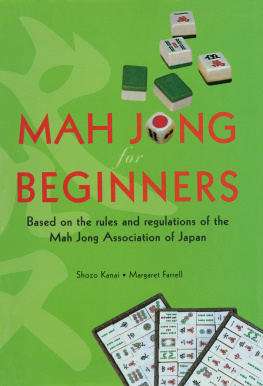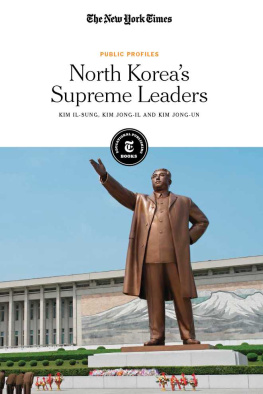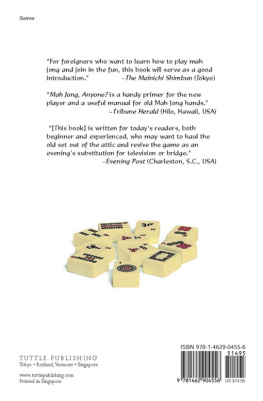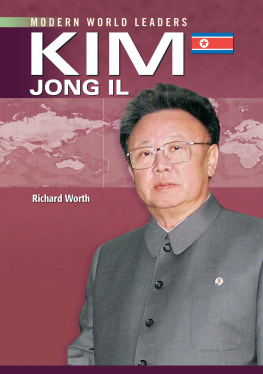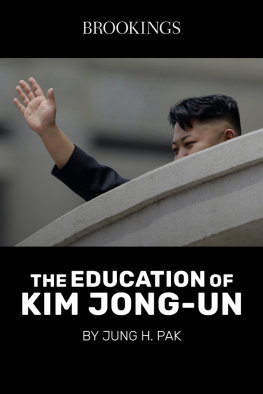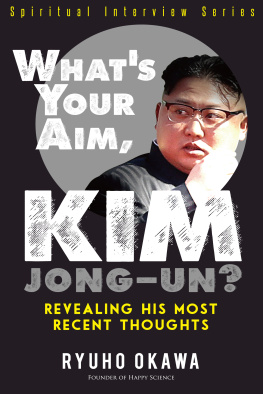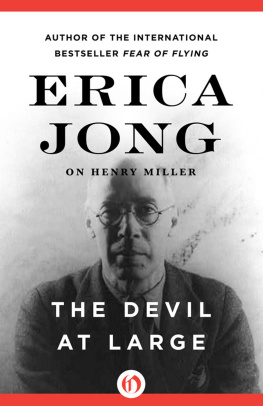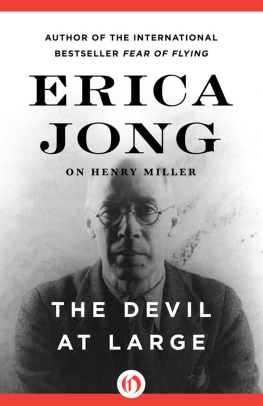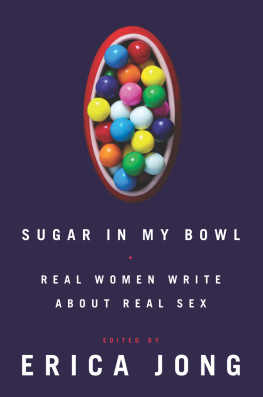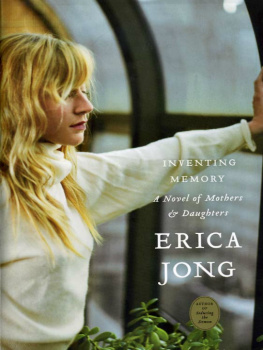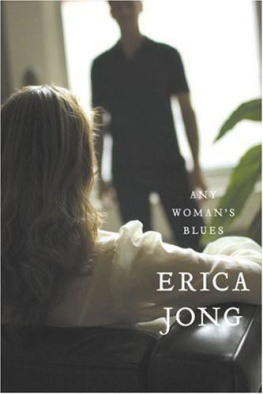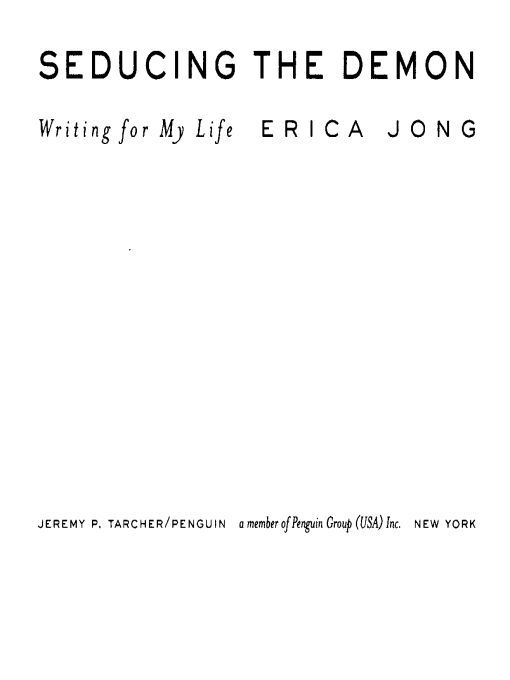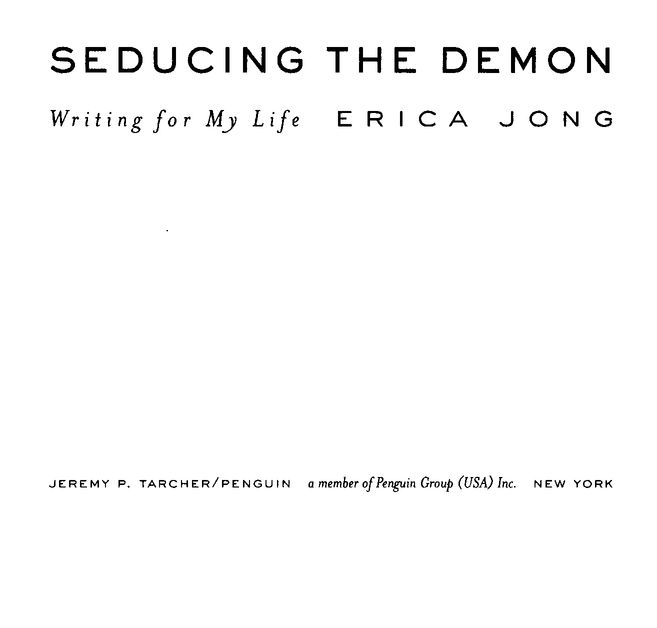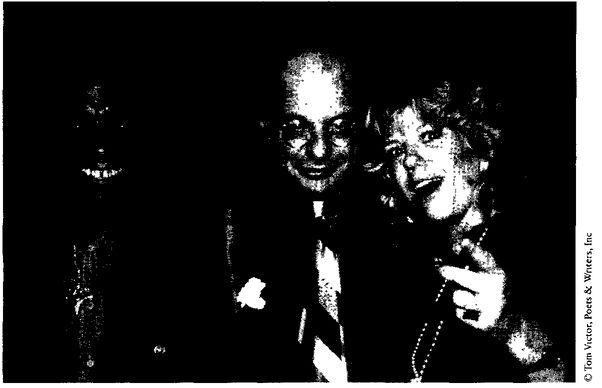Table of Contents
Salacious [and] a pleasure ... Erica Jong has more chutzpah in her erogenous zones than most writers have in their entire being. Shes one of the few whod say, I have longed to be able to do the diva on appropriate occasions, but Im too short, then admit in the next sentence, As for the care and feeding of studs, I did that in my thirties and forties and had my fi!).
Los Angeles Times Book Review
Funny, brazen and sly, Jong gossips, chronicles moments of personal folly, explicitly recounts sexual escapades, and characterizes her muse as a demon lover.... Smart and saucy.
Booklist
ALSO BY ERICA JONG
POETRY
Fruits & Vegetables
Half-Lives
Loveroot
At the Edge of the Body
Ordinary Miracles
Becoming Light
FICTION
Fear of Flying
How to Save Your Own Life
Fanny: Being the True History of the Adventures
of Fanny Hackabout-Jones
Megans Book of Divorce; Megans Two Houses
Parachutes & Kisses
Serenissima: A Novel of Venice
(republished as Shylocks Daughter)
Any Womans Blues
Inventing Memory
Sapphos Leap
NONFICTION
Witches
The Devil at Large: Erica Jong on Henry Miller
Fear of Fifty
What Do Women Want?
CREDITS AND PERMISSIONS
Amos Oz passage: Excerpt from A Tale of Love and Darkness by Amos Oz, copyright 1993 by Amos Oz and Keter Publishing House Ltd., translation copyright 2004 by Nicholas de Lange, reprinted by permission of Harcourt, Inc.
The Journals of Sylvia Plathpassage: From The Journals of Sylvia Plath by Ted Hughes (ed.), copyright 1982 by Ted Hughes as Executor of the Estate of Sylvia Plath. Used by permission of Doubleday, a division of Random House, Inc.
Carolyn Kizer, Pro Femina: Pro Femina from Cool, Calm & Collected. Copper Canyon Press, 2002. Copyright 2002 by Carolyn Kizer. Used by permission of the author.
Fitzgerald passage: Reprinted by permission of Harold Ober Associates Incorporated. From The Correspondence of F. Scott Fitzgerald. Copyright 1980 by Frances Scott Fitzgerald Smith.
Buddhist passage: Copyright 1997 Thanissaro Bhikkhu. Access to Insight edition. Used with permission.
ArielThe Restored Edition,The Moon and the Yew Tree: Eleven lines from The Moon and the Yew Tree by Sylvia Plath, from ArielThe Restored Edition, copyright The Estate of Sylvia Plath, 2004. Reprinted by permission of Frieda Hughes.
Frieda Hughes,Wooroloo: Four lines from Readers by Frieda Hughes, from Wooroloo, copyright Frieda Hughes, 1999. Reprinted by permission of Frieda Hughes.
ACKNOWLEDGMENTS
Portions of this book first appeared, in slightly different form, in The New York Times Book Review and The Writer.
Deepest thanks to Ken Siman, who knows why.
To the memory of my father,
Seymour,
and
for Ken,
my cockeyed optimist
When I was little, my ambition was to grow up to be a book.
Not a writer. People can be killed like ants. Writers are not
hard to kill either. But not books. However systematically you
try to destroy them, there is always a chance that a copy will
survive and continue to enjoy a shelf-life in some corner of an
out-of-the-way library somewhere, in Reykjavik, Valladolid,
or Vancouver.
AMOS OZ
James Baldwin, Allen Ginsberg, Erica Jong in 1978
INTRODUCTION
I started this as a book of advice to fledgling writers. Why? Probably because I was terrified of writing my next novel. I have been working on what I call, in my notebooks, novel number nine for more years than I want to admit. I start it, write two hundred or so pages and let myself be tempted into another projecta novel about Sappho in ancient Greece, a memoir about my life as a writer, anything that will distract me from the novel bubbling in my brain.
After many false starts, I finally know novel number nine has to be about Isadora Wing as a woman of a certain age. That fills me with fear of writing. Going back to my most famous heroine after the ravages of time have chastened us both cannot be a painless proposition. Isadora has baggage and so does her author. It may be Goyard or Vuitton baggage, but its baggage nonetheless. And despite what my loyal readers may think, I have never found it easy to reveal myself on the page.
I wrote my first novel, Fear of Flying, telling myself no one would ever read it. I wrote my other novels that way toothough the pretense was harder to achieve. My historical novels were the most pleasurable to write because I could retreat to eighteenth-century England or sixteenth-century Venice or ancient Greece. Wearing a mask is fun. Behind a mask, as Venetian revelers knew, you feel free.
When Fear of Flying sold an obscene number of copies and was read all over the worldthankfully, it continues to be readI had to learn to draw back and find privacy for the next foray. Success can be as daunting as failure. I felt publiclike a frog (with apologies to Emily Dickinson). Everyone judged me against a debut I made when I was young and green. Everyone constantly referred to that book.
Its a universal fantasy to have a book that becomes a phenomenon and is reador perhaps skimmedeven by people who dont usually read. Some of them have strong opinions about the book without having ever cracked the spine. But beyond that early, unlikely coup, I wanted to have a shelf of books after my name. I didnt want to be a flash in the pan. My poetry and my historical novels kept me challenging myself even if the rest of the world only wanted Fear of Flying over and over again. Besides, as a defrocked academic, I loved holing up in a library and doing research. It was certainly more soothing than trying to live up to Erica Zipless Fuck Jong.
Im not disowning my first novel. Im proud of it. I think it has guts and juicetwo things I prize. But I wrote it when I was very youngmore than three and half decades ago.
So I spent five years evading my next novel and found solace in a book of advice to young writers I had in my computer. I had also been making notes for it for fifteen years! (My books tend to gestate like baby elephants.) I kept a little blue Chinese silk notebook full of advice from the great and the near greatas Mel Brooks and Carl Reiners 2000 Year Old Man would say. I published some of it on my web site, some in The New York Times Book Reviewa long piece about how Sylvia Plath had influenced my generation of writersand some in The Writer. Aspiring writers wrote to tell me my thoughts on writing were helpful. The first draft of the writing book contained such things as this list:
TWENTY-ONE RULES FOR WRITERS
1. Have faithnot cynicism.
2. Dare to dream.
3. Take your mind off publication.
4. Write for joy.


